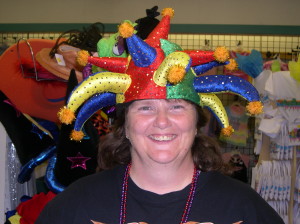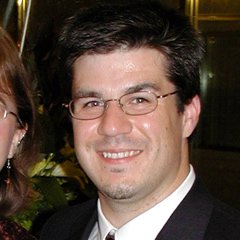A guest post by Holly Dawn Hewlett.
What is the greatest gift I’ve received as a writer? It is always a dangerous thing to ask any artist this question. As artists, we are affected and marked by everything we encounter. What comes to mind when I see this question is the unspoken expectation of the asker, “And can I use this gift in my career?” I would answer that anytime someone takes the time to consider “the greatest of anything” that has affected them, that you have a rare opportunity to add to those experiences that affect and mark you!
For me, the greatest gift I have received as a writer is fortitude. This fortitude has come in the form of humans and experiences throughout my life. As with most writers, my work is like pouring my blood on a page and hoping not to be a victim of a public execution! As strong as I am, as much as I have to put words to page….I cringe at releasing my work to world. They haven’t birthed it, they haven’t agonized over the consonants and vowels, and they haven’t sat in the darkness as their muse exacts her price for this gift.
My journey with fortitude began early. Writing kept me from killing myself or anyone else during my childhood. I could write anything and get all the horror and pain out, which made space for beauty. I was a gifted student in the ghetto of Philly, fresh from divorced parents, a country bumpkin living in a truck camper on an empty lot with my mom, 3 brothers and several cousins. Until I turned 13, less than a handful of people EVER saw my writings, and no one saw all of it.
Thankfully, English classes require you to write, so from 7th grade on, my teachers knew of my writings. One of these, Mrs. Sheridan made me apply for the R Stewart Rausch program at Temple University. Little did I know I was about to find my lifelong mentor Lonnie Moseley. This program took ghetto kids who were gifted and let them go to college in the summer! I was in Heaven! Lonnie took each of us, found our passion and fanned it with all the resources at her disposal. She also didn’t shy away from the reality of our daily lives….abuse, broken homes, drugs, and death. For the first time in my life I could show someone ANY of my writings and not be afraid of reprisal or ridicule! This gave me the strength to leave the ghetto. To go explore the world and find my voice.
My journey continued onto the road. I spent 26 years driving a tractor trailer. It you don’t have fortitude or self-reliance when you start, you will either have it or be dead within 30 days. I loved the road, the indescribable beauty of our country and its peoples, and the challenge everyday of what the day may bring. One of my greatest experiences was finding thousands of other truckers who were writers! There is something about reading a poem into a mic at 3 am going down the road that is cathartic and completely unnerving! Unbelievably, you find out there are countless others who feel just like you.
At 32 years old, I finally had the chance to go to college! I experienced the most unnerving incident of my writing career! Apparently, when you are concentrating and learning anew, unless you are endeavoring in creativity- The brain will shut off sectioned to handle the new stress load being placed on it! The chance of a lifetime (for me) eagerly looking forward to the next 4 years…AND I COULD NOT WRITE! NOT ONE BLOODY RHYME! Not even a couplet! I sat in my dad’s kitchen and sobbed, he of course was dumbfounded. Thankfully, I went to my English Prof Adele Mery, who explained that this happened all the time. She turned me onto a Stephen King book, Nightmares in the Sky http://www.amazon.com/Nightmares-Sky-Grotesques-Stephen-King/dp/0670823074 Even the great writer Stephen King had experienced writers block! I took everyone’s advice and tried to just not think about it. Low and behold, about 5 months into my first year—My Muse came back with a vengeance! THANK YOU UNIVERSE!
During these years my fortitude was beaten, bruised, and tempered. I, an out and proud, take no shit Woman and Lesbian…was attending college in South Texas, the only state that has had a criminal statute for just BEING Gay! AND, The University of Texas Pan American, was 93% Roman Catholic. Most of the time my fellow students were waiting for me to burst into a pillar of flames! They let you know real quick that you could wind up dead, but I gave as good as I got and have some awesome scars to tell my grandkids about! Yet, my defining moment wasn’t in school, it was at home; my dad asked me to use a pen name so his customers wouldn’t know it was his daughter writing all this gay and political poetry! I remember going to my room, crying for a couple hours and then there is that moment: I dried my eyes and said Never! I had never hid before then and I wasn’t going to start now. I had the support of my Best Friend, Clancy Metzger, who is also a writer. We are both warriors, each time one of us is weary of the fight the other one grabs the scruff of the neck and pulls you back up and shoves your quill back in your hand and says, “Put on your big girl pants and suck it up!”
I have not looked back since! I look the world in the eye. I speak my truth, and if it helps someone else…I have created a piece of beauty and saved a life! It is not easy, but I can look myself in the mirror and know that that nightmare is NOT speaking, Not writing, not living my truth.
So, speak your truth, stick your chin out, look the world in the eye….fortitude is of no use if you don’t strengthen it with a good work out now and then!
Holly Dawn Hewlett is a published poet, Slivers of My Soul on Amazon.com. Her passions are print media, Pitbulls, and Reduce Reuse and Recycle! She is an Energy Consultant for Ambit Energy, working to save people money on their electricity and natural gas bills, check out www.Killthemeter.energy526.com



 Dylan Blacquiere Bio:
Dylan Blacquiere Bio: